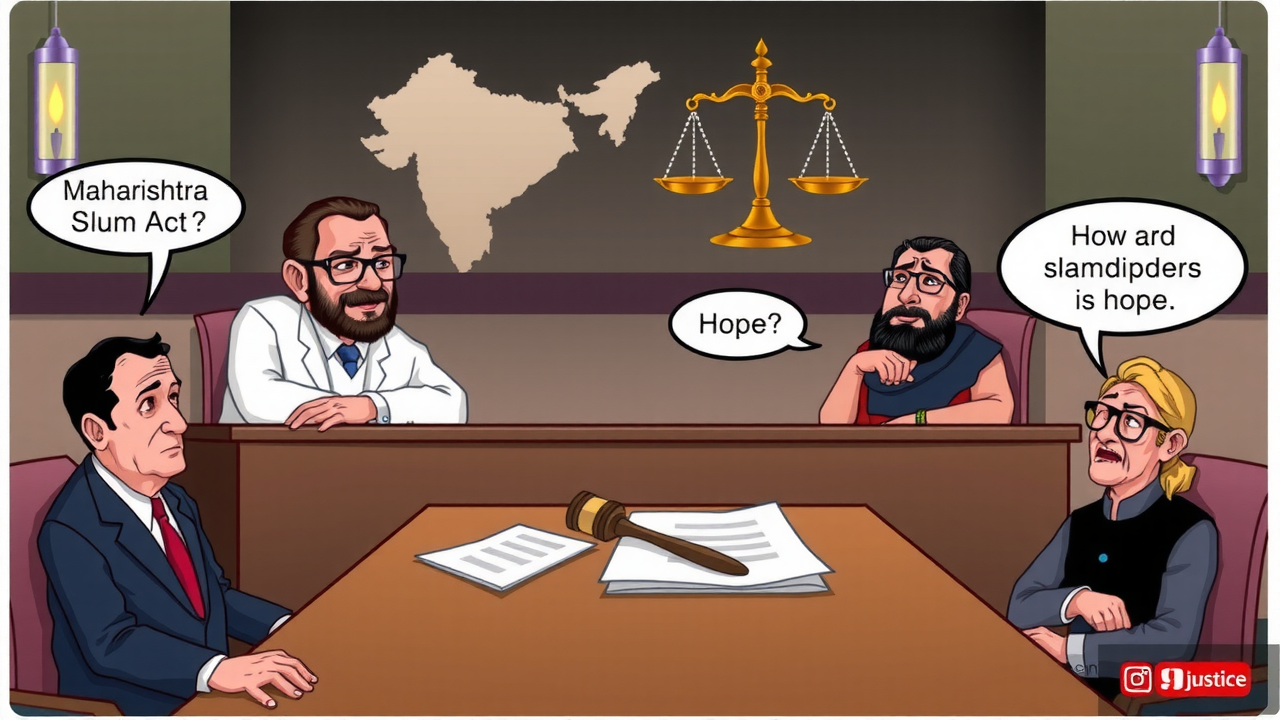The Supreme Court has recommended a comprehensive statutory audit of the Maharashtra Slum Areas Act, emphasizing the importance of reviewing and assessing the implementation of statutes. This recommendation follows a case involving a delayed slum development project and highlights significant concer

A Supreme Court bench comprising Justices P.S. Narasimha and Aravind Kumar has recommended a thorough statutory audit of the Maharashtra Slum Areas (Improvement, Clearance, and Redevelopment) Act, 1971 (Maharashtra Slum Areas Act). The court emphasized that assessing and reviewing the implementation of a statute is a fundamental aspect of the Rule of Law. This aligns with the obligation of the executive government, as constitutional courts have previously directed such audits to evaluate the performance of various statutes.
Judicial Rationale for Statutory Audit:
- The Supreme Court stated that reviewing a law ensures it operates as intended. If not, it identifies reasons and addresses them swiftly.
- Constitutional courts, through judicial review, are in a unique position to perceive a statute’s effectiveness and can identify issues in its implementation.
- The court highlighted that it has often directed the executive to conduct performance audits or suggested amendments to statutes to resolve identified issues.
Case Background and Judicial Decisions:
- The suggestion for the audit arose from a case where a developer delayed a slum development project for over two decades, leading to the termination of their agreement. The Bombay High Court upheld this termination, which was then appealed to the Supreme Court.
- The Supreme Court dismissed the appeal and imposed a cost of Rs. 1,00,000, raising concerns about the statutory scheme of the Maharashtra Slum Areas Act.
- The court described the Act as beneficial, aimed at ensuring individual dignity through basic housing. However, the tendency of the statute to generate litigation was noted as worrisome, indicating a problem with the statutory framework.
Concerns and Issues with the Maharashtra Slum Areas Act:
Pending Cases and Litigation
- Data from the National Judicial Data Grid shows 1612 cases under the Act pending before the Bombay High Court. Of these, 135 cases are over 10 years old.
- Over the last 20 years, 4488 cases have been filed and resolved by the High Court.
- Currently, 923 cases on the appellate side and 738 on the original side are pending adjudication.
Statutory Concerns Highlighted by the Court
- Identification and Declaration of Slum Land: The role of authorities in this process and the influence of builders raise concerns about independence and integrity in decision-making.
- Identification of Slum Dwellers: This complex process involves proving status, leading to groupism and competing claims, often resulting in litigation.
- Selection of Developers: The decision is left to the cooperative society of slum dwellers, with majority decisions frequently manipulated by rival developers.
- Apportionment of Slum Land: Developers often seek to increase the proportion of sale areas, leading to disputes.
- Transit Accommodation for Slum Dwellers: Developers frequently fail to provide timely or adequate transit accommodation, leading to refusals from slum dwellers due to inconvenience or insufficient rent.
- Independence and Objectivity of Statutory Authorities: The lack of independence, short tenures, and potential regulatory capture are significant concerns regarding statutory authorities’ functioning.
- Ineffectiveness of Statutory Remedies: Statutory remedies lack effectiveness and accountability, making judicial review under Article 226 (power of high courts to issue certain writs) an unsustainable long-term solution.
Supreme Court’s Directive:
- The Supreme Court requested the Chief Justice of the Bombay High Court to form a bench to initiate suo moto proceedings for reviewing the Act’s implementation.
- This includes conducting a comprehensive statutory audit of the Maharashtra Slum Areas Act.





